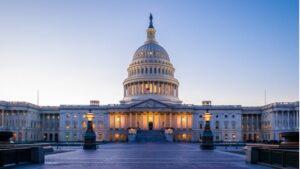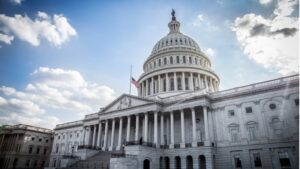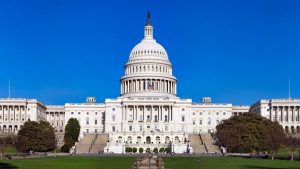Members of Congress and state lawmakers are urging congressional Republicans to drop their plans to add language to the National Defense Authorization Act (NDAA) that would place a moratorium on state-level laws regulating artificial intelligence (AI).
The House voted to pass two key cybersecurity-related pieces of legislation on Monday that would renew cybersecurity grants for state and local government until 2033 and stand up an interagency task force to address threats posed by China.
The funding package approved by Congress and President Donald Trump has temporarily extended a cybersecurity grant program used by state and local governments to support their cyber defense measures.
The government shutdown and Congress’s failure to reauthorize the Cybersecurity Information Sharing Act of 2015 (CISA 15) have put cyber defenses at risk, cybersecurity experts are warning, saying the pressure is now on state and local governments and industry members.
More than 30 Democratic members of the House of Representatives are urging top Senate leaders to reconsider a proposal being offered in the Senate that would require states seeking Federal broadband support to abide by a proposed ten-year moratorium on creating state-level artificial intelligence (AI) regulations.
Sens. Ben Ray Luján, D-N.M., ranking member of the Senate Telecommunications and Media Subcommittee, and Deb Fischer, R-Neb., chair of the subcommittee, announced on Thursday the reconstitution of the Universal Service Fund (USF) Working Group.
A small but significant slice of lawmakers – including several Republican members of the House and Senate – are getting cold feet over supporting the Trump administration’s reconciliation funding bill because it includes a House-approved provision that would impose a ten-year moratorium on state-level artificial intelligence regulation.
Federal lawmakers and cybersecurity leaders are calling for sweeping education reforms and expanded student visa opportunities to help build a stronger, more resilient cyber workforce in the United States – one they say is essential to defending against growing digital threats.
Democrats and Republicans on Capitol Hill clashed this week over who should police artificial intelligence technologies – the Federal government or states – and on what AI regulation should look like no matter which level of government has the upper hand.
House Energy and Commerce Committee Chairman Brett Guthrie, R-Ky., is pushing to give the Commerce Department an extra $500 million for artificial intelligence (AI) tech capabilities – and to block state AI regulations – through the budget reconciliation process that is kicking off in Congress this week.










